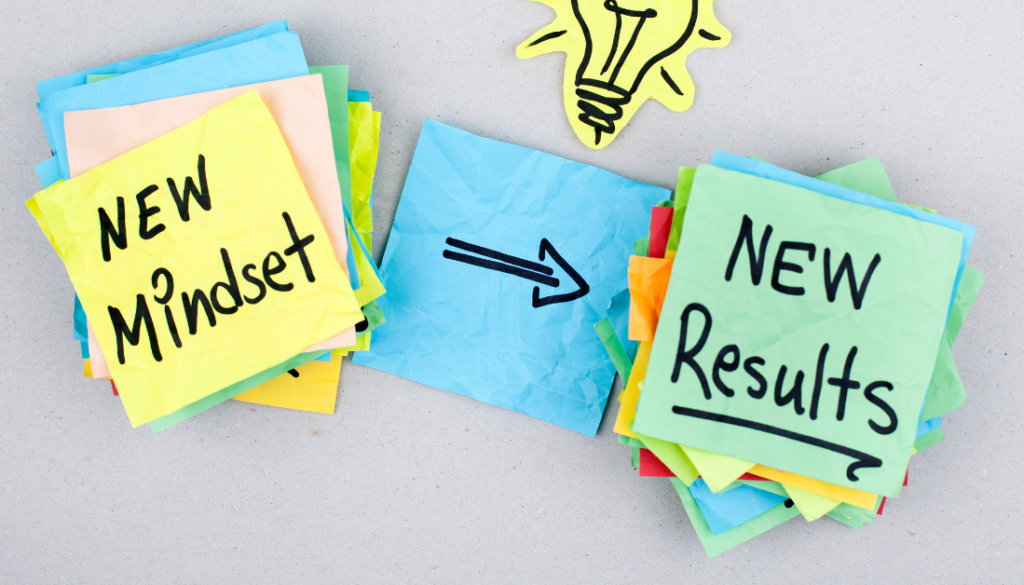Growth Mindset Doesn’t Work Without This
There’s no shortage of talk about the growth mindset these days. Growth mindset was identified (but has always existed) by psychologist Carol Dweck in her research at Stanford University. After decades of research, Dweck went on to write a book, Mindset, which distills much of this research and its insights into practical applications and actionable strategies.
Dweck’s research can be applied to various areas including:
- academic achievement
- company culture
- strategy
- employee engagement
- the learning process
- motivation
- the classroom
- and so much more
Fixed Mindset vs Growth Mindset
What is a fixed mindset?
Imagine for a moment that you pick up a golf club for the very first time. Someone places a ball on the ground in front of you and asks you to swing the club and hit the ball. You’ve seen it done on television so you know more or less what a swing looks like. You swing and hit the club right into the ground creating a large divot.
You see the ball, still sitting right where it started and you think to yourself, “golf isn’t my sport.”
That is a fixed mindset. It is the belief that you are either good or bad at something and there’s no way to go from bad to good. You are either a writer or not a writer. You are either a math person or not a math person. For the most part, you believe certain things are simply innate and cannot be improved through learning and effort.
What is a growth mindset?
Now imagine that same scenario and outcome. You just missed and created a large divot in the ground with the golf club. You see the ball, still sitting where it started and you think to yourself, “I’m going to need some golf lessons.”
That is a growth mindset. It is the belief that we can improve through learning and effort. It doesn’t mean we have to become the best, it simply means we can learn it through some effort.
No One is All Growth or All Fixed
While we may tend to be more growth or more fixed in our mindsets, rarely is anyone one or the other all of the time. For instance, you can be growth mindset when it comes to learning professional skills and then believe in love at first sight (fixed mindset). Love at first sight assumes the feeling is exists right away or it’s not. If you don’t feel it on the first or second date, then it’s not meant to be or just not going to work. We are complex beings and have our own unique mix of mindsets.
Why is it Important to Have a Growth Mindset?
Professor Carol Dweck found that successful people had a growth mindset in common. They tended to believe if they didn’t know something they could learn any necessary new skill, talent, or ability. These people did not believe that they had to have a natural talent, innate ability, or fixed trait. Instead, through perseverance and effort they could achieve success and personal growth.
The key to adopting a growth mindset is self-awareness. Becoming aware of a fixed mindset when it starts to emerge allows you to stop it and replace it with a growth mindset. One effective way to do that is by asking yourself an empowering question that forces you to find a solution. For example, what can I learn that will help me solve this problem? Sounds simple enough, but when the fixed mindset takes over, we say something just as simple like, “I can’t do this” or “I’ll never figure this out.” Neither of which are questions.
Having a growth mindset empowers us to develop and grow to solve the challenges of our career and life pursuits. As we progress from one level to the next, we will absolutely encounter challenges we were not prepared for and a growth mindset positions us for success.
However, a growth mindset doesn’t just stop there. It isn’t enough to adopt a growth mindset in our career and life pursuits. In fact, that’s only half the story.
Without This, Growth Mindset Doesn’t Work
When I taught math, my single most important belief was that every student could SUCCEED at and GROW in math. It did not matter what happened in prior classes or school years. I believed they could succeed and it was my job to figure out how to unlock their growth.
I applied this mindset to each and every student I taught, coached, or tutored. Many times, people would warn me about a student. While I believe that parents and teachers had great intentions, I would put all of that aside ahead of working with students.
The only thing I needed to know about this student was that they had it in them to succeed and grow in math. In fact, it was this belief and mindset about them that I credit with my early success when I did not have the teaching experience.
Early in my teaching career, I did not know how I would unleash their growth. I didn’t have advanced teaching strategies or tactics to leverage. What I did have was an unshakable belief that they could succeed in math and it was my job to unleash their growth. I believed this so much that not too long after, they started to believe it too (often to their surprise). I learned that embracing this powerful mindset as an educator influenced students’ mindsets.
Through this experience, I learned how powerful and essential it was for me to have a positive mindset about them. It was not enough to only have a growth mindset about myself. I had to adopt a growth mindset about those I served as well. Without this, the power of mindset theory is lost.
Growth Mindset for You + Others = Success
Having this mindset about students drove me to achieve ever-growing levels of success with students. My journey started out working with high school math students at a local learning center. Eventually this mindset drove me to start my own math coaching business, work as a math education consultant, and lastly as a full-time middle school math teacher. I embedded the growth mindset into the words I used, the assignments and assessments I created, and the student outcomes I set. Essentially, I created a growth mindset culture in the classroom.
Adopting growth mindset for my students and myself created the foundation that allowed me to successfully make an impact. Taking this one step further, the growth mindset is one of the most powerful and necessary building blocks for constant and never-ending success.
What mindset and beliefs do you bring into your career and life? How about those around you?


Implementing Growth and Learner’s Mindset in the Learning Environment – Jebird free as a bird
March 24, 2024 @ 6:40 pm
[…] Osorio, R. (2021, April 6). Growth mindset doesn’t work without this. Roger Osorio Reinvention. https://rogerosorio.com/thejourneytoreinvention/professor-carol-dweck-growth-mindset/ […]
Reflection on Learning – Jebird free as a bird
May 1, 2024 @ 5:51 pm
[…] Osorio, R. (2021, April 6). Growth mindset doesn’t work without this. Roger Osorio Reinvention. https://rogerosorio.com/thejourneytoreinvention/professor-carol-dweck-growth-mindset/ […]
How to Quickly Shift from a Fixed to a Growth Mindset - Roger Osorio Reinvention
March 11, 2025 @ 6:32 am
[…] Growth Mindset Doesn’t Work Without This […]